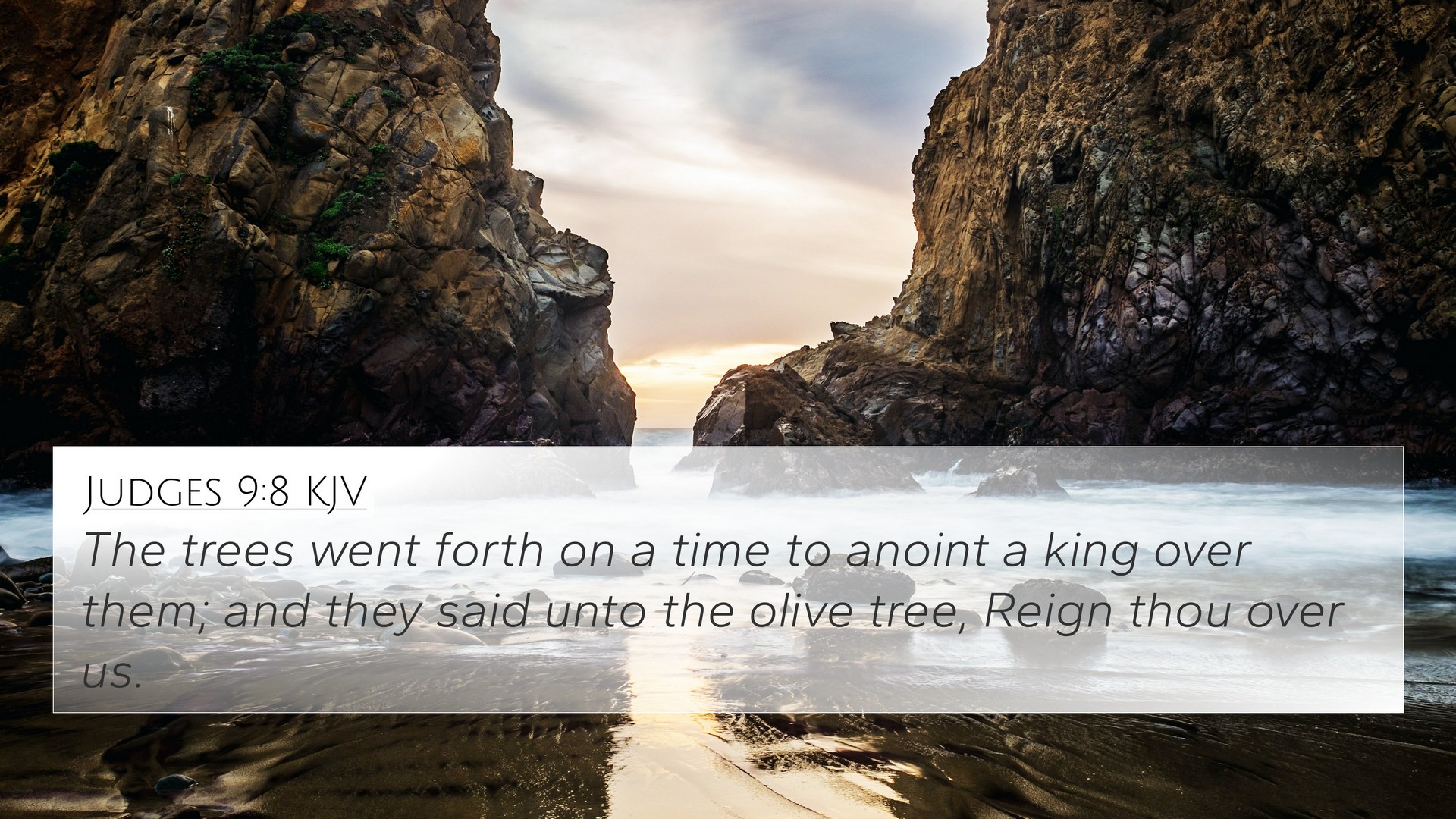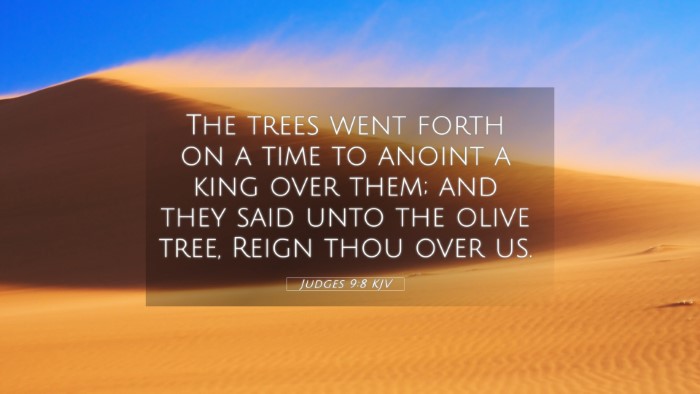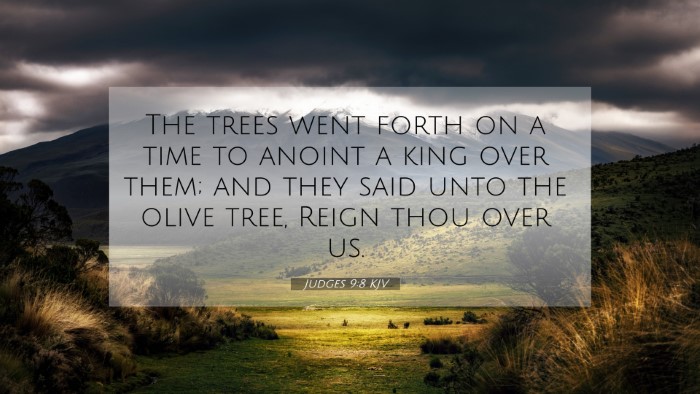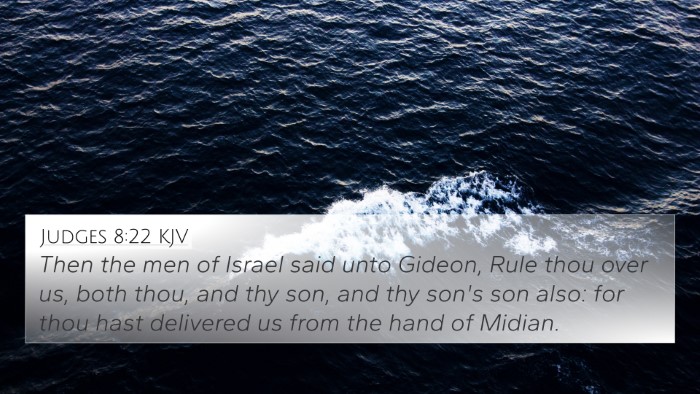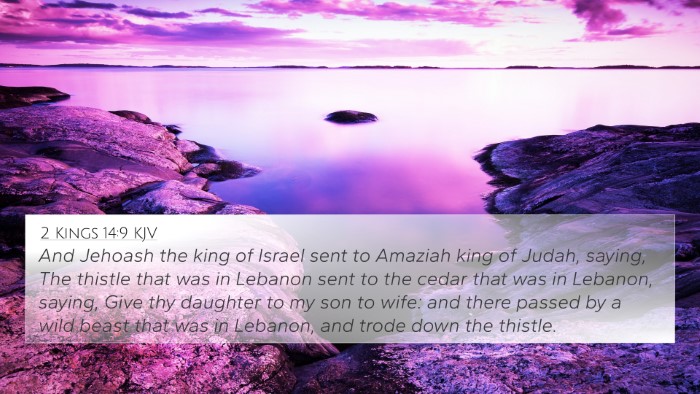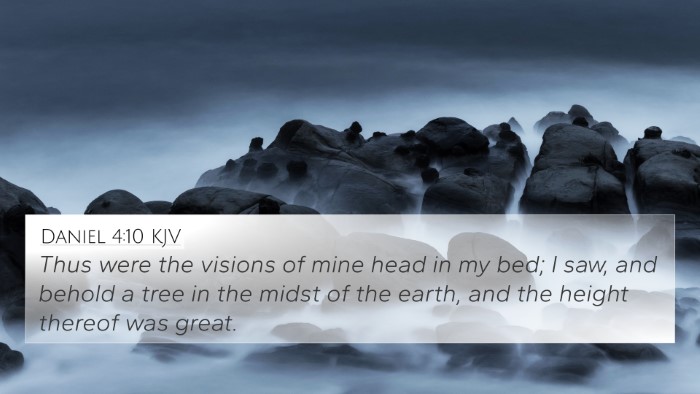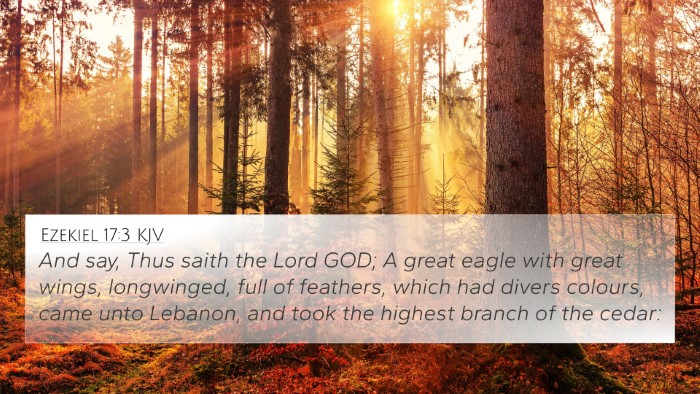Understanding Judges 9:8
Judges 9:8 reads: "The trees once went forth to anoint a king over them; and they said unto the olive tree, Reign thou over us."
Summary of Judges 9:8
This verse serves as an introduction to the fable-like narrative in Judges chapter 9., highlighting the unique dynamic of the trees seeking a ruler. The symbolism of the trees reflects various forms of leadership and the characteristics that each type of leader possesses. This passage sets the stage for understanding the nature of authority and the desire of the people to have governance.
Insights from Notable Commentators
-
Matthew Henry:
Henry interprets this verse as illustrating the folly of seeking power for power's sake. The trees’ request for an olive tree to reign over them reflects a misunderstanding of true leadership and its implications for the community.
-
Albert Barnes:
Barnes emphasizes that the olive tree, representative of productivity and usefulness, is symbolic of a leader who not only holds authority but also provides benefits to those they lead. The choice of the olive tree signifies qualities that are desirable in rulers.
-
Adam Clarke:
Clarke points out that the trees’ selection process is akin to the flawed human choices in leadership, reminiscent of Israel's own historical contexts when flawed leaders were chosen over God’s appointed leaders. The request from the trees demonstrates the inclination of man to seek superficial power.
Thematic Connections and Cross-References
Judges 9:8 is heavily interwoven with themes of leadership, authority, and the consequences of human governance. Here are some significant cross-references that illuminate these themes:
- 1 Samuel 8:5: This reference describes the Israelites' request for a king, mirroring the trees' search for a ruler.
- 1 Kings 12:8-11: The consequences of seeking leadership outside of wisdom and Godly counsel are explored through Rehoboam’s decisions.
- Matthew 20:25-28: Jesus contrasts worldly leadership with servanthood, emphasizing the characteristics that truly define a good leader.
- Isaiah 32:1: This verse proclaims that a righteous king will reign in justice, highlighting the virtues that should characterize effective leadership.
- Proverbs 11:14: The importance of wise counsel in leadership is reinforced, illustrating what the olive tree signifies.
- Psalm 75:7: The psalm reflects God’s ultimate authority over rulers, contrasting human desire for leadership.
- Romans 13:1: This passage reminds believers that all authority is established by God, which speaks to the larger theme of divine sovereignty inherent in Judges’ narrative.
- Ecclesiastes 10:16-17: The blessings and curses of rulers and their impact on societies are depicted, resonating with the implications of the trees choosing leadership.
- Luke 22:25-26: A discussion on true greatness and authority, indicative of the deeper meanings present in Judges 9.
- Jeremiah 23:1-4: A caution against shepherds (leaders) who mislead their flock, reiterating the need for righteous leadership.
Clarifying Leadership through Cross-Referencing
By utilizing a Bible cross-reference system, one can connect Judges 9:8 to broader theological themes found throughout scripture. Cross-referencing these texts illustrates the continuity of thought regarding leadership, authority, and divine governance.
Tools for Bible Cross-Referencing
Using a bible concordance can help you find relevant scriptures that connect with Judges 9:8, allowing for deeper study and understanding of Biblical themes.
Interpreting Biblical Themes through Cross-References
Engaging in cross-referencing Bible study methods can reveal thematic connections between Old and New Testament scriptures, providing a comprehensive view on the nature of leadership exemplified in Judges 9:8 and its related verses.
Conclusion
The exploration of Judges 9:8 through various commentaries, along with its scriptural cross-references, fosters a deeper understanding of the nature of leadership sought in humanity while also reflecting God’s sovereign authority over governance. As one studies this verse within the broader context of the Bible, it becomes clear how interconnected the messages of leadership and authority are across scriptures.
In pursuing further studies, consider the bible reference resources available to uncover more about how the trees' quest for a king mirrors humanity’s historical struggles with power and leadership, both flawed and divine.
